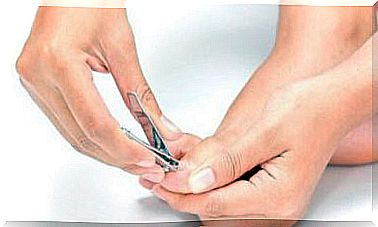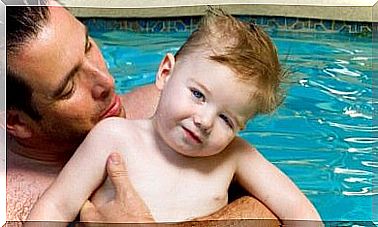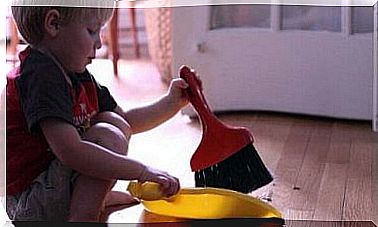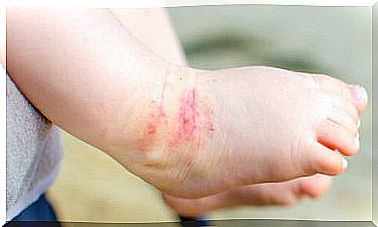The Intellectual Disability Of A Child: How To Deal With It?
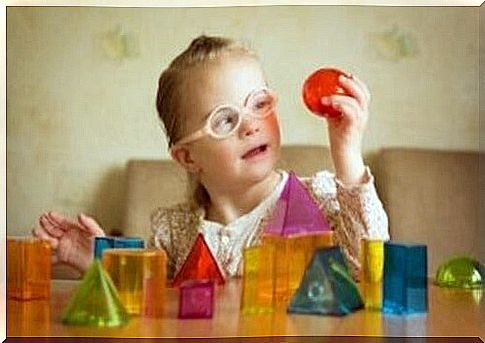
Mothers and fathers, when they are expecting the arrival of a baby, tend to create a series of expectations about his appearance, his personality, his qualities and so on. But when the baby is born with disorders, these thoughts dissolve to make room for acceptance of the new situation. For this reason, today we will talk about how to deal with a child’s intellectual disability.
Home education is essential to have a favorable prognosis and development in these children. Furthermore, it is important to treat them like others and to take into account their limitations. But without being overprotective.
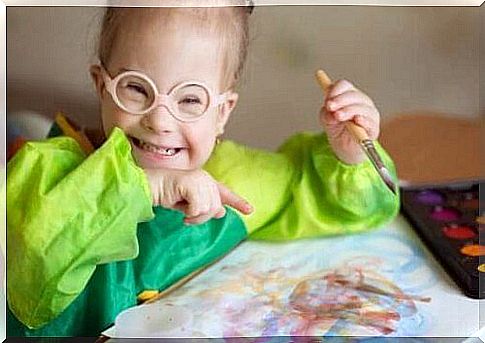
What does intellectual disability involve?
Currently, this disability is perceived as the presence of a significantly lower level of development than the norm, based on the age of the person and in two areas:
- Intellectual functioning.
- Adaptive behaviors.
In addition, these children, in general, have the following characteristics:
- Problems in the execution of coarse and fine motor skills.
- Muscle hypotonia.
- Difficulty relating to the physical environment.
- Problems in establishing social and communicative relationships.
- Difficulty in developing one’s independence and personal autonomy.
How to deal with a child’s intellectual disability?
Accepting that you have a child with an intellectual disability is sometimes complicated and can even involve a period of mourning. Therefore, in these cases, it is important to be able to count on the help of professionals in the field. Being able to do this is a help both for the child and for the parents, since the latter will need advice to accept the reality that touches them to live.
In this regard, it is important that a diagnosis is made, so you must be able to count on professionals and associations to support them. With their help, mothers and fathers will be able to:
- Learn observation and intervention strategies.
- Acquire skills to stimulate and educate.
- Develop skills for the education and interpretation of the child’s behavior.
- Have information on intellectual disabilities.
- Get in touch with other families who are in the same situation.
All this knowledge is specially designed to achieve adequate progress in any aspect of the life of the child with intellectual disabilities. Furthermore, it is particularly necessary that parents are not overprotective towards their child, just as they should not underestimate his abilities.
At the same time, it is important to seek advice on aspects related to the couple’s relationship, as it can deteriorate due to constant conflicts and points of disagreement over the child’s upbringing, or because one of the two members of the couple feels overwhelmed by the situation.
In addition, close ties with other children and with the extended family (grandparents, uncles, cousins, etc.) must be taken care of, so that they learn to understand the child and understand his behavior.
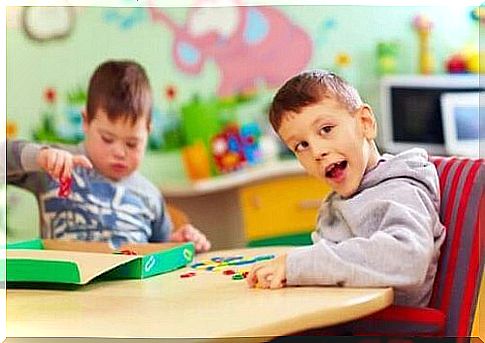
Disability: a different path
The birth of a child is a time of change in any person’s life; a moment in which he takes the path of motherhood or fatherhood. However, if the child shows an intellectual delay, the perception is that of an extraordinary and unexpected fact. For this reason, the journey becomes a different path, in which one must learn to respond to the specific needs of the child.
In this sense, the mothers and fathers of children with intellectual disabilities need a sense of direction to improve the quality of life of the children, of themselves and their families. Finally, it is necessary to report the sentence of the master Pablo Pineda, the first European with Down Syndrome to conclude a university course and to have proved himself an example of overcoming one’s limits:
This phrase should be engraved in the minds of all mothers and fathers of children with intellectual disabilities, in order to instill in them confidence in their child’s qualities and abilities and so that they give him support.
